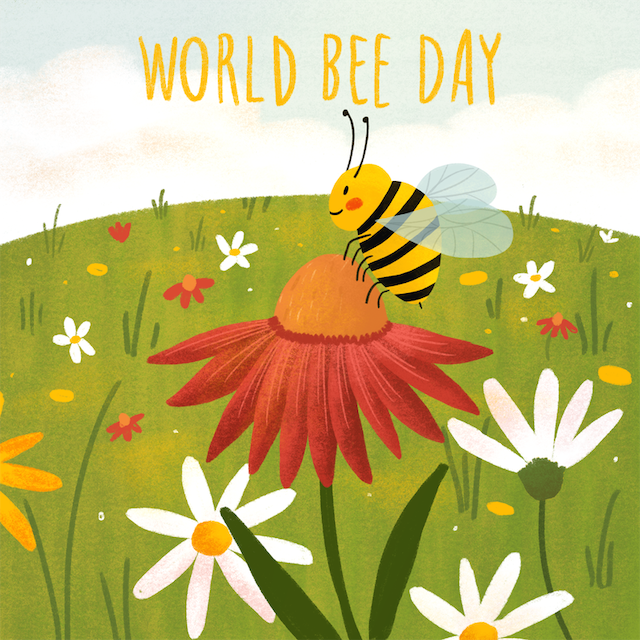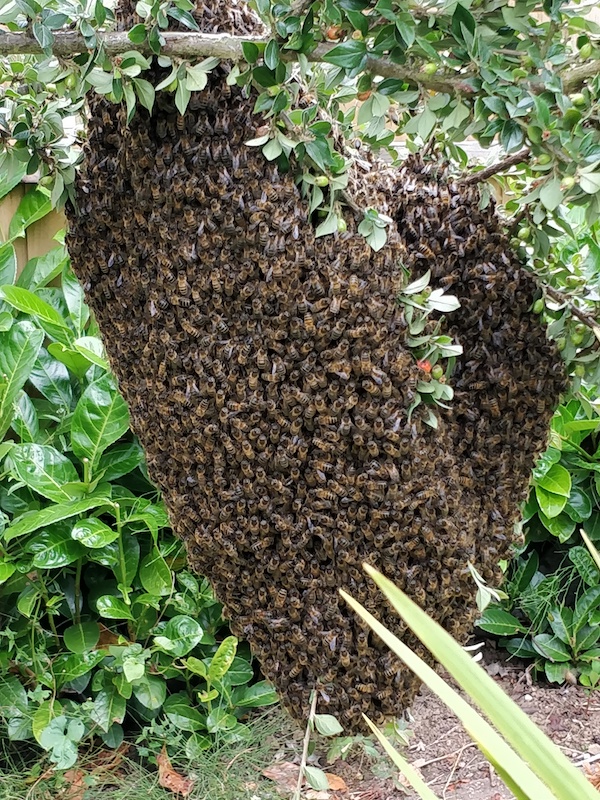
World Bee Day 🐝 – Saturday 20 May
Celebrating our favourite day of the year, and this year’s theme is all about bee-ing engaged!
It’s a fabulous opportunity to acknowledge the critical role bees play in our lives. These amazing little creatures pollinate around 70% of the world’s crops that we rely on for food. Research estimates that one out of every three mouthfuls of food we eat depends on honey bees and the pollination process. Wow!
Keen to bee engaged? Here are just a few easy things you can do:
- Grow bee friendly plants in your garden. Look for the ‘bee friendly’ logo at your local nursery or garden centre. Choose plants that flower at different times of the year so there is always something tasty for the bees. They particularly love blue and purple flowers. If you have room, flowering bushes and trees provide fantastic forage.
- Provide water for the bees – a shallow bowl filled with a few pebbles and rainwater is ideal.
- Mow less. This month is ‘no mow May’ so leave your lawn and grass verges for wildflowers to bloom. You’ll also get some weeds, but bees and pollinators love them too.
- Provide habitat. Bees need safe places to nest and hibernate. Create a bee hotel or a nesting box for solitary bees, or leave some areas of your garden undisturbed for ground-nesting bees.
- Avoid using pesticides, herbicides, and other chemicals that can harm bees.
- Buy honey from your small, local beekeepers to support their work in looking after the hives and keeping the bees healthy.
If you’d like to find out more about bees and beekeeping visit us at a local market. We have a regular slot at the brilliant Kings Norton Farmers’ Market and we pop up at the Kings Heath Artisan Market.
To find out more information about this special day please visit the British Beekeeper Association’s website, and follow #WorldBeeDay.

